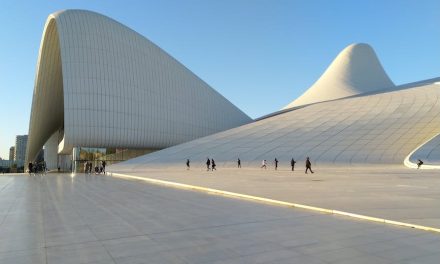Table of Contents
- Introduction
- The Impact of Social Media on Arab Leadership Styles
- Exploring the Role of Social Media in Shaping Arab Leadership Narratives
- Analyzing the Influence of Social Media on Arab Leadership Decision-making
- Understanding the Challenges and Opportunities of Social Media for Arab Leaders
- Q&A
- Conclusion
Unveiling the Power of Social Media in Arab Leadership.
Introduction
Understanding the role of social media in Arab leadership is crucial in today’s digital age. With the widespread use of social media platforms, leaders in the Arab world have recognized the power and influence these platforms hold. This introduction aims to explore the significance of social media in shaping Arab leadership, examining how it has transformed communication, mobilization, and public perception. By delving into this topic, we can gain insights into the evolving dynamics between leaders and their constituents, as well as the potential implications for governance and societal change in the Arab region.
The Impact of Social Media on Arab Leadership Styles

The Impact of Social Media on Arab Leadership Styles
In recent years, social media has emerged as a powerful tool that has revolutionized the way people communicate and interact with one another. This technological advancement has not only transformed the way individuals connect on a personal level but has also had a profound impact on various aspects of society, including politics and leadership. In the Arab world, social media has played a significant role in shaping and influencing leadership styles, bringing about both positive and negative consequences.
One of the most notable impacts of social media on Arab leadership is the increased accessibility and transparency it provides. In the past, Arab leaders often relied on traditional media outlets to disseminate information and control the narrative. However, with the rise of social media platforms such as Facebook, Twitter, and Instagram, leaders are now directly connected to their constituents, bypassing traditional gatekeepers. This direct communication allows leaders to engage with their followers in real-time, addressing their concerns and sharing updates on policies and initiatives. Consequently, social media has facilitated a more open and transparent form of leadership, fostering a sense of trust and accountability between leaders and their constituents.
Furthermore, social media has also empowered Arab citizens, giving them a platform to voice their opinions and hold their leaders accountable. In the past, dissenting voices were often silenced or marginalized, but social media has provided a space for individuals to express their grievances and demand change. This newfound ability to mobilize and organize online has led to the emergence of grassroots movements and protests, challenging the status quo and pushing for political and social reforms. Social media has thus become a catalyst for change, enabling citizens to actively participate in the political process and shape the direction of their countries.
However, while social media has undoubtedly brought about positive changes in Arab leadership, it has also presented challenges and risks. One of the main concerns is the spread of misinformation and the manipulation of public opinion. With the ease of sharing information on social media, false narratives and propaganda can quickly gain traction, leading to the distortion of facts and the polarization of society. Arab leaders must navigate this landscape carefully, ensuring that accurate information is disseminated and combating the spread of fake news. Additionally, social media can also be a breeding ground for hate speech and incitement, which can further exacerbate existing tensions and divisions within society. Leaders must therefore be vigilant in monitoring and addressing such harmful content to maintain social cohesion.
Moreover, the influence of social media on Arab leadership has also raised questions about the role of traditional institutions and hierarchies. With the rise of social media influencers and online activists, the power dynamics between leaders and their constituents have shifted. Arab leaders must now contend with individuals who hold significant sway over public opinion, often rivaling or even surpassing their own authority. This changing landscape requires leaders to adapt their leadership styles, embracing a more collaborative and inclusive approach that takes into account the voices and concerns of these influential online figures.
In conclusion, social media has had a profound impact on Arab leadership styles, bringing about both positive and negative consequences. It has increased accessibility and transparency, allowing leaders to engage directly with their constituents and fostering a sense of trust and accountability. Additionally, social media has empowered citizens, giving them a platform to voice their opinions and demand change. However, challenges such as the spread of misinformation and the manipulation of public opinion, as well as the changing power dynamics between leaders and influencers, must be carefully navigated. Arab leaders must harness the potential of social media while also addressing its risks to ensure effective and responsible leadership in the digital age.
Exploring the Role of Social Media in Shaping Arab Leadership Narratives
Understanding the Role of Social Media in Arab Leadership
In recent years, social media has emerged as a powerful tool for communication and information sharing. Its impact on various aspects of society, including politics and leadership, cannot be underestimated. This article aims to explore the role of social media in shaping Arab leadership narratives, shedding light on its influence and implications.
Social media platforms such as Facebook, Twitter, and Instagram have become integral parts of the daily lives of millions of people in the Arab world. These platforms have provided a space for individuals to express their opinions, share news, and engage in political discussions. As a result, social media has become a catalyst for political activism and a platform for citizens to voice their concerns and demands.
One of the key ways in which social media has influenced Arab leadership is by providing a platform for dissent and opposition. In the past, traditional media outlets were often controlled by the state, limiting the space for critical voices. However, social media has allowed individuals to bypass these restrictions and share their thoughts and opinions freely. This has led to the emergence of new leaders and movements that challenge the status quo.
Furthermore, social media has played a crucial role in mobilizing and organizing protests and demonstrations. Platforms like Facebook and Twitter have been used to spread information about upcoming events, coordinate logistics, and rally support. This has been particularly evident in the Arab Spring, where social media played a pivotal role in mobilizing mass protests and demanding political change.
In addition to its role in mobilization, social media has also influenced the way Arab leaders communicate with their constituents. Leaders have recognized the power of social media in reaching a wider audience and have started to use these platforms to disseminate their messages. Platforms like Twitter have become a direct channel of communication between leaders and citizens, allowing for more transparency and accountability.
However, the rise of social media has not been without its challenges. The spread of misinformation and fake news has become a significant concern, as it can easily be shared and amplified on social media platforms. This has the potential to shape public opinion and influence political narratives. Arab leaders must navigate this landscape carefully, ensuring that accurate information is disseminated and countering false narratives.
Moreover, social media has also raised concerns about privacy and surveillance. Governments in the Arab world have been known to monitor social media platforms and target individuals who express dissenting views. This has led to self-censorship and a chilling effect on freedom of expression. Arab leaders must strike a balance between utilizing social media for communication and ensuring the protection of citizens’ rights.
In conclusion, social media has had a profound impact on Arab leadership narratives. It has provided a platform for dissent, mobilization, and communication between leaders and citizens. However, it also poses challenges such as the spread of misinformation and concerns about privacy and surveillance. Arab leaders must navigate these challenges carefully to harness the potential of social media while safeguarding the rights and well-being of their citizens. As social media continues to evolve, its role in shaping Arab leadership will undoubtedly continue to evolve as well.
Analyzing the Influence of Social Media on Arab Leadership Decision-making
Understanding the Role of Social Media in Arab Leadership
Analyzing the Influence of Social Media on Arab Leadership Decision-making
In recent years, social media has emerged as a powerful tool for communication and information sharing. Its impact on various aspects of society, including politics and leadership, cannot be underestimated. This article aims to explore the role of social media in Arab leadership, specifically focusing on its influence on decision-making processes.
Social media platforms such as Facebook, Twitter, and Instagram have become integral parts of the daily lives of millions of people in the Arab world. These platforms have provided a space for individuals to express their opinions, share news, and engage in political discussions. As a result, Arab leaders have recognized the importance of social media in shaping public opinion and have started to utilize these platforms to communicate with their constituents.
One of the key ways in which social media influences Arab leadership decision-making is by providing a platform for citizens to voice their concerns and grievances. In the past, citizens had limited avenues to express their opinions and hold their leaders accountable. However, social media has changed this dynamic by allowing individuals to share their thoughts and experiences with a wide audience. This has forced Arab leaders to pay attention to public sentiment and consider the concerns of their citizens when making decisions.
Furthermore, social media has also facilitated the dissemination of information and news in real-time. Arab leaders can now communicate directly with their constituents, bypassing traditional media channels. This has allowed leaders to control their narrative and shape public opinion more effectively. By using social media, Arab leaders can present their policies and decisions in a favorable light, thereby influencing public perception and support.
However, it is important to note that social media can also be a double-edged sword for Arab leaders. While it provides them with a platform to engage with their constituents, it also exposes them to criticism and scrutiny. Arab leaders are now more vulnerable to public backlash and protests, as social media amplifies dissenting voices and mobilizes public opinion against unpopular decisions. This has forced leaders to be more cautious and responsive to public demands, as they are aware of the potential consequences of ignoring public sentiment.
Moreover, social media has also played a significant role in mobilizing social and political movements in the Arab world. The Arab Spring, which swept across the region in 2011, was largely fueled by social media platforms. Activists used these platforms to organize protests, share information, and mobilize support for their causes. This demonstrates the power of social media in shaping political landscapes and influencing leadership decisions.
In conclusion, social media has become an integral part of Arab leadership, influencing decision-making processes in various ways. It provides a platform for citizens to voice their concerns and hold leaders accountable, while also allowing leaders to shape public opinion and control their narrative. However, social media also exposes leaders to criticism and mobilizes public opinion against unpopular decisions. As social media continues to evolve, its role in Arab leadership will likely continue to grow, shaping the future of governance in the region.
Understanding the Challenges and Opportunities of Social Media for Arab Leaders
Understanding the Role of Social Media in Arab Leadership
In today’s digital age, social media has become an integral part of our lives. It has transformed the way we communicate, share information, and engage with others. This is no different for Arab leaders, who are increasingly recognizing the power and influence of social media in shaping public opinion and mobilizing support. However, with this newfound opportunity comes a set of unique challenges that Arab leaders must navigate.
One of the key challenges that Arab leaders face in utilizing social media is the need to balance transparency with security concerns. While social media platforms provide a direct line of communication with the public, they also expose leaders to potential security risks. Arab leaders must carefully consider the information they share on social media, ensuring that it does not compromise their safety or the stability of their regimes.
Another challenge for Arab leaders is the potential for social media to amplify dissent and opposition. Social media platforms have provided a space for individuals to voice their opinions and organize protests, as seen during the Arab Spring. Arab leaders must be aware of the power of social media in mobilizing opposition and take proactive measures to address the concerns of their citizens. This may involve engaging with the public through social media, addressing their grievances, and implementing reforms to address their concerns.
Despite these challenges, social media also presents numerous opportunities for Arab leaders to connect with their constituents and shape public opinion. Social media platforms provide a direct and immediate channel for leaders to communicate their policies, initiatives, and achievements. By leveraging social media, Arab leaders can bypass traditional media channels and directly engage with their citizens, fostering a sense of transparency and accessibility.
Moreover, social media allows Arab leaders to reach a wider audience and engage with the youth population, which is increasingly active on these platforms. By utilizing social media, Arab leaders can bridge the generational gap and connect with the aspirations and concerns of the younger generation. This can help build trust and legitimacy, as well as foster a sense of ownership and participation among the youth.
Furthermore, social media can serve as a tool for Arab leaders to counter misinformation and propaganda. In an era of fake news and disinformation, social media platforms can be used to provide accurate and timely information to counter false narratives. By actively engaging with their citizens on social media, Arab leaders can shape the narrative and ensure that their message is heard.
In conclusion, social media plays a significant role in Arab leadership, presenting both challenges and opportunities. Arab leaders must carefully navigate the balance between transparency and security, while also addressing the potential for social media to amplify dissent. However, by leveraging social media, Arab leaders can connect with their constituents, shape public opinion, and counter misinformation. As social media continues to evolve, it is crucial for Arab leaders to adapt and harness its power to effectively lead and engage with their citizens.
Q&A
1. What is the role of social media in Arab leadership?
Social media plays a significant role in Arab leadership by providing a platform for communication, mobilization, and engagement with citizens.
2. How does social media impact Arab leadership?
Social media impacts Arab leadership by enabling leaders to connect directly with citizens, disseminate information, shape public opinion, and respond to societal issues in real-time.
3. What are the benefits of social media for Arab leaders?
Social media allows Arab leaders to enhance transparency, build public trust, gather feedback, and mobilize support for their policies and initiatives.
4. Are there any challenges associated with social media in Arab leadership?
Yes, challenges include the spread of misinformation, the potential for social unrest, privacy concerns, and the need for effective regulation to ensure responsible use of social media platforms.
Conclusion
In conclusion, understanding the role of social media in Arab leadership is crucial in today’s digital age. Social media platforms have provided a powerful tool for Arab leaders to communicate with their citizens, shape public opinion, and mobilize support. It has also allowed for greater transparency and accountability, as citizens can voice their concerns and hold leaders accountable for their actions. However, social media also presents challenges, such as the spread of misinformation and the potential for manipulation. Therefore, it is important for Arab leaders to navigate these platforms responsibly and effectively in order to harness the full potential of social media for positive change and effective leadership.




